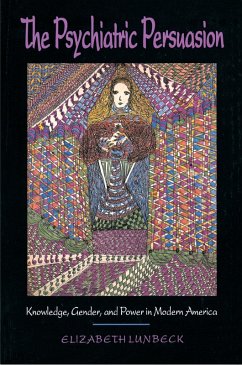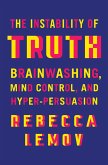In the years between 1900 and 1930, American psychiatrists transformed their profession from a marginal science focused primarily on the care of the mentally ill into a powerful discipline concerned with analyzing the common difficulties of everyday life. How did psychiatrists effect such a dramatic change in their profession's fortunes and aims? Here, Elizabeth Lunbeck examines how psychiatry grew to take the whole world of human endeavor as its object.
Dieser Download kann aus rechtlichen Gründen nur mit Rechnungsadresse in A, D ausgeliefert werden.
[With] the tools of a historian and the skills of a talented writer, [Lunbeck] . . . uses a social context to examine how psychiatrists viewed society and how society shaped the development of psychiatric thought. . . . Her book will be of interest to students and professionals in the field of mental health, as well as to historians, sociologists, and general readers interested in the early 20th century in America. . . . highly readable, informative, and even picturesque in its evocations.









